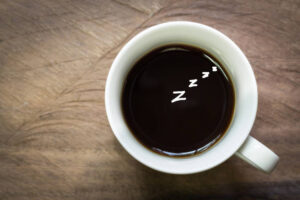Is your beloved cup of coffee secretly plotting against your skin? While coffee is an essential part of many people’s daily routines, some believe that it might be the culprit behind unwanted pimples. In this blog post, we’ll take a closer look at the relationship between coffee and skin breakouts. We’ll explore the potential causes, debunk myths, and give you practical tips to keep your skin glowing. Whether you’re a coffee lover or someone trying to understand the mysteries of skincare, read on to learn more about how your caffeine fix might be affecting your complexion.
Understanding Acne and Skin Health
Before we jump into the effects of coffee, it’s important to understand what acne is. Acne occurs when hair follicles become clogged with oil, dead skin cells, and bacteria. This leads to the formation of pimples, blackheads, and whiteheads. Hormonal changes, genetics, and lifestyle factors can all contribute to the development of acne. While some foods and drinks are believed to trigger acne, it’s essential to note that everyone’s skin responds differently. Understanding the basics of acne can help you make informed decisions about your skincare routine.
The Role of Diet in Skin Health
Your diet plays a crucial role in the health of your skin. A balanced diet rich in fruits, vegetables, and whole grains can promote a clear complexion. On the other hand, a diet high in sugar and processed foods may lead to inflammation, which can worsen acne. While some people believe that coffee can cause pimples, it’s important to look at the bigger picture. Diet is just one of many factors that can affect your skin. Genetics, stress, and skincare habits also play a significant role.
Coffee and Its Impact on Hormones
Coffee is known to stimulate the central nervous system, which can lead to increased production of stress hormones like cortisol. Elevated cortisol levels can trigger the production of sebum, an oily substance produced by the skin. Excess sebum can clog pores and lead to pimples. However, the relationship between coffee and hormone levels is complex, and its impact on acne may vary from person to person. If you notice that your skin seems to worsen after consuming coffee, it might be worth exploring the connection further.
The Role of Caffeine in Skin Health
Caffeine, a key component of coffee, has both positive and negative effects on the skin. On the positive side, caffeine is known for its antioxidant properties, which can help protect the skin from free radicals and environmental damage. It can also improve blood circulation and reduce puffiness. However, excessive caffeine consumption can lead to dehydration and inflammation, which may contribute to acne. Moderation is key when it comes to enjoying the benefits of caffeine without wreaking havoc on your skin.
Coffee’s Effect on Blood Sugar Levels
Another factor to consider is coffee’s impact on blood sugar levels. Some studies suggest that coffee might cause a temporary spike in blood sugar, leading to increased insulin production. High insulin levels can stimulate the production of sebum, which can contribute to acne. If you’re concerned about the potential effects of coffee on your blood sugar, try opting for black coffee without added sugars or creamers. This can help minimize the impact on your skin.
The Link Between Coffee Additives and Acne
It’s not just the coffee itself that could be affecting your skin. Additives like sugar, cream, and flavored syrups can contribute to acne. Sugar can cause inflammation, while dairy products in creamers may trigger breakouts in some individuals. To minimize the risk of acne, consider reducing the amount of sugar and dairy in your coffee. There are plenty of dairy-free alternatives available, such as almond milk or oat milk, which can be gentler on your skin.
Hydration and Skincare
Staying hydrated is essential for maintaining healthy skin. While coffee is a diuretic and can contribute to dehydration, drinking it in moderation is unlikely to have a significant impact on your hydration levels. However, it’s important to balance your coffee consumption with plenty of water throughout the day. Proper hydration helps flush out toxins and keeps your skin looking fresh and radiant. If you find that your skin is feeling dry or tight, it might be time to reassess your hydration habits.
Stress and Its Effects on Acne
Stress is a well-known trigger for acne, and coffee can contribute to feelings of anxiety and nervousness in some people. If you’re prone to stress-related breakouts, consider moderating your coffee intake. Finding alternative ways to manage stress, such as yoga, meditation, or exercise, can be beneficial for both your skin and overall well-being. Remember, everyone’s tolerance to caffeine is different, so it’s important to listen to your body and make adjustments as needed.
Tips for Managing Coffee-Related Breakouts
If you suspect that coffee is contributing to your breakouts, there are several steps you can take to mitigate its effects. First, try limiting your coffee intake to one or two cups a day. Switch to decaffeinated coffee or explore herbal teas as an alternative. Pay attention to your body’s response to different types of coffee and additives. Keep a skincare journal to track changes in your skin and identify potential triggers. Lastly, maintain a consistent skincare routine with cleansing, moisturizing, and exfoliating to support your skin’s health.
Debunking Common Coffee Myths
There are several myths surrounding coffee and acne that are worth addressing. One common misconception is that coffee causes acne directly. In reality, there is no definitive scientific evidence to support this claim. Another myth is that quitting coffee will instantly clear up your skin. While reducing coffee consumption may help some individuals, it’s not a guaranteed solution for everyone. It’s important to approach skincare holistically and consider all factors that may be contributing to acne.
The Importance of a Consistent Skincare Routine
A well-rounded skincare routine is essential for maintaining healthy, clear skin. Cleanse your face twice a day to remove dirt and oil. Use a gentle exfoliator to slough away dead skin cells and prevent clogged pores. Moisturize daily to keep your skin hydrated and balanced. Don’t forget to wear sunscreen to protect your skin from UV damage. Consistency is key, and it may take time to see results. Be patient and make adjustments as needed to find what works best for your skin.
Seeking Professional Advice
If you’re struggling with persistent acne, it’s important to seek guidance from a dermatologist or skincare professional. They can help identify the root cause of your breakouts and recommend personalized treatment options. While lifestyle changes and dietary adjustments can be beneficial, professional advice can provide valuable insights into your unique skin needs. Don’t hesitate to reach out for help if you’re feeling overwhelmed by acne.
FAQs About Coffee and Pimples
Can coffee cause pimples overnight?
Not directly. Pimples do not form overnight and are influenced by a variety of factors, including diet, hormones, and skincare habits.
Is it okay to drink coffee if I have acne-prone skin?
Moderation is key. Pay attention to how your skin reacts to coffee and make adjustments as needed. Consider reducing additives like sugar and cream.
How can I reduce the impact of coffee on my skin?
Limit your intake to one or two cups a day, stay hydrated, and maintain a consistent skincare routine. Opt for black coffee or dairy-free alternatives.
Conclusion
While coffee may be a beloved daily ritual, it’s important to consider how it might affect your skin. By understanding the potential factors that contribute to acne, you can make informed choices about your skincare and dietary habits. Remember, balance is key, and moderation can help you enjoy your coffee without compromising your complexion. If you have concerns about your skin, don’t hesitate to seek professional advice for personalized guidance.






